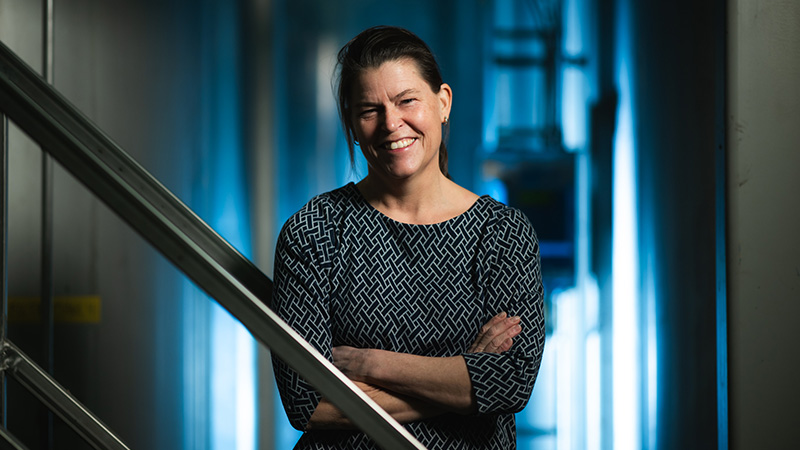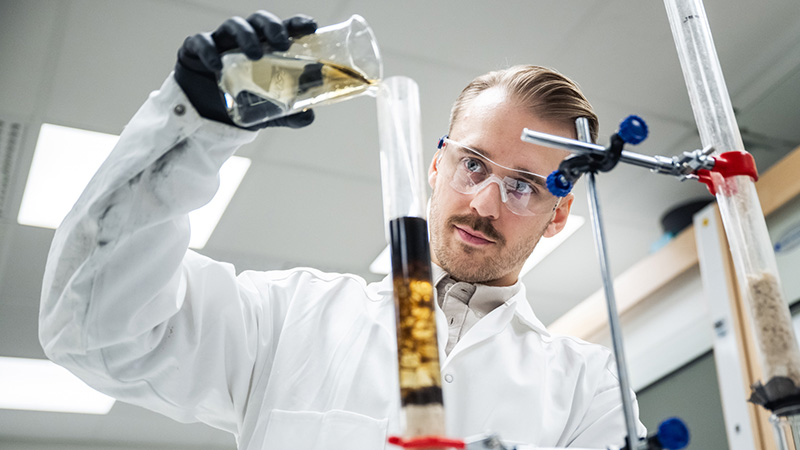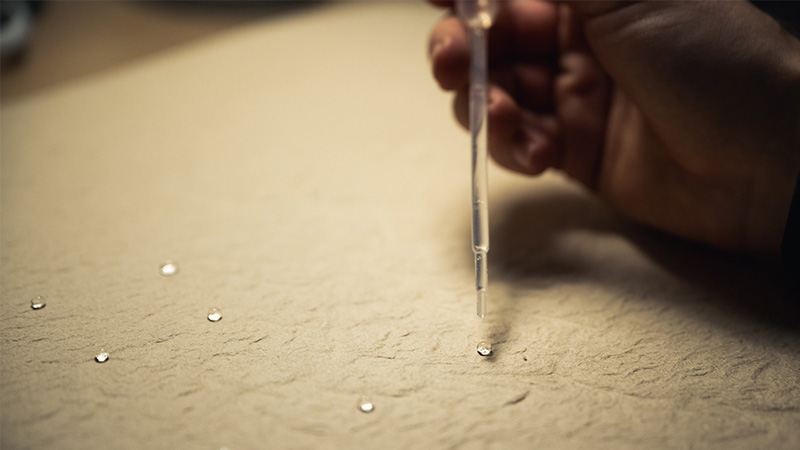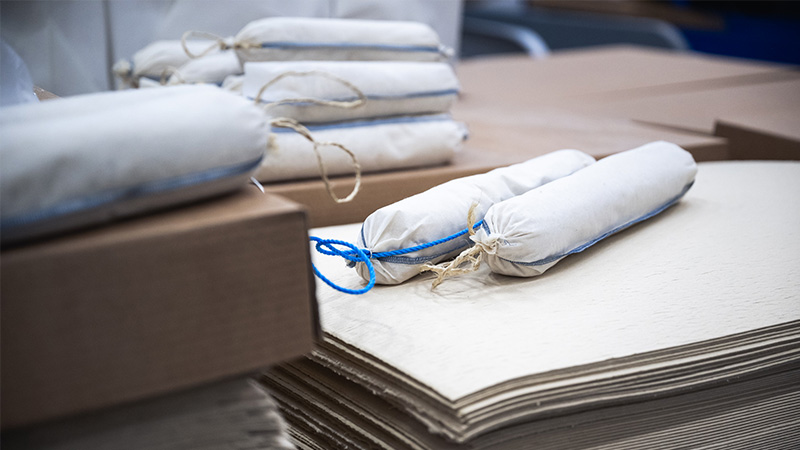
"Biosorbe’s Innovation Helps Customers Reach Their Environmental Goals"
The environmental technology company Biosorbe AB, based in Värmland, Sweden, was born from two entrepreneurs’ search for sustainable ways to clean up oil spills. Their initiative sparked a chain of advanced research, collaborations within the forest-based bioeconomy, and innovative technology development. The result: a natural, cellulose-based absorbent that effectively soaks up oil and other pollutants—without absorbing water.

Kajsa Fougner, CEO of Biosorbe
Cleaning up Oil Spills in Aquatic and Industrial Environments
At the facility in Kristinehamn, Biosorbe manufactures products that are in demand both in Sweden and on the export market.
“Our products are used to clean up oil spills in aquatic environments and in industrial settings to prevent oil leakage,” says Kajsa Fougner, CEO of Biosorbe.
“We also produce absorbent pads used to soak up oil around machinery in forestry and other environments where oil and water are present together.”
Oil spills in nature often cause extensive damage that is difficult to remedy. Biosorbe’s method makes cleanup easier and significantly more environmentally friendly. The technology is also used in products that prevent oil from leaking from machines and vehicles, protecting sensitive environments from contamination.

From Research to a Highly Valued Circular Product
The absorbents are made from forest-based raw materials. The research was conducted in laboratory settings at KTH Royal Institute of Technology by two successive PhD students. Their findings laid the foundation for the technology and products that Biosorbe continues to develop today.
“Cellulose fibers normally absorb water easily. The big challenge was to find a way to treat the fibers so they repel water and only absorb oil and similar substances,” explains Kajsa Fougner.
Biosorbe’s products are made from natural cellulose fibers and are both effective and environmentally friendly. The material is lightweight and highly absorbent—each gram can absorb 10–20 times its own weight in oil, making it extremely efficient for cleanup. After use, both the oil and absorbent can be energy-recovered. If Biosorbe’s absorbent ends up in nature, it is biodegradable—like a wood chip—and leaves no microplastics behind.
“We receive a lot of positive feedback from customers who see that our products help them achieve their environmental goals. It’s also meaningful to contribute to the green transition on a societal level,” says Kajsa Fougner.

"The Reasons to Stay in Värmland Have Only Grown Stronger Over Time"
The leap from lab to real-world testing marked the beginning of Biosorbe’s journey into the Värmland business community.
“We came here thanks to a collaboration with Rottneros, who offered access to equipment and expertise at their pulp mill in Sunne. Paper Province and the large network of actors in the forest bioeconomy have been incredibly valuable to us—and the reasons to stay in Värmland have only grown stronger over time.”
Since then, Biosorbe has remained in Värmland. In 2025, the company moved its operations to Kristinehamn and took over Renewcell’s former demonstration facility, which turned out to be ideal for scaling up production.
“One major advantage is the expertise available in the region and the close proximity between actors. There’s a strong willingness to collaborate, which is crucial for a small tech company like ours,” says Kajsa Fougner.
“Here, we have access to consultants, suppliers, and people with extensive industrial experience. It’s an open and generous business environment.”

"Our Goal is to Apply the Technology Where it Can Make the Greatest Impact"
Interest in Biosorbe’s current offerings is high, and the company is seeing growing curiosity about ongoing development and future applications of its technology.
“We now have much greater capacity, which supports both technology and product development,” Kajsa Fougner continues.
“Here, we can vary raw materials and formulations in close dialogue with our customers.”
One of the new directions involves partnerships with industrial players to explore how Biosorbe’s technology can serve as a key component in other companies’ processes.
“The core feature of our absorbent is its hydrophobicity—its ability to repel water. Combined with the fact that it’s fully bio-based and naturally degradable, it’s especially attractive to industries seeking sustainable solutions. Our goal is to apply the technology where it can make the greatest impact,” says Kajsa Fougner.

Biosorbe AB
A Värmland-based environmental technology company that has developed a groundbreaking, bio-based absorbent for efficient and sustainable cleanup of oil spills in water, air, and soil.
Employees: 5-10
Website: www.biosorbe.com

